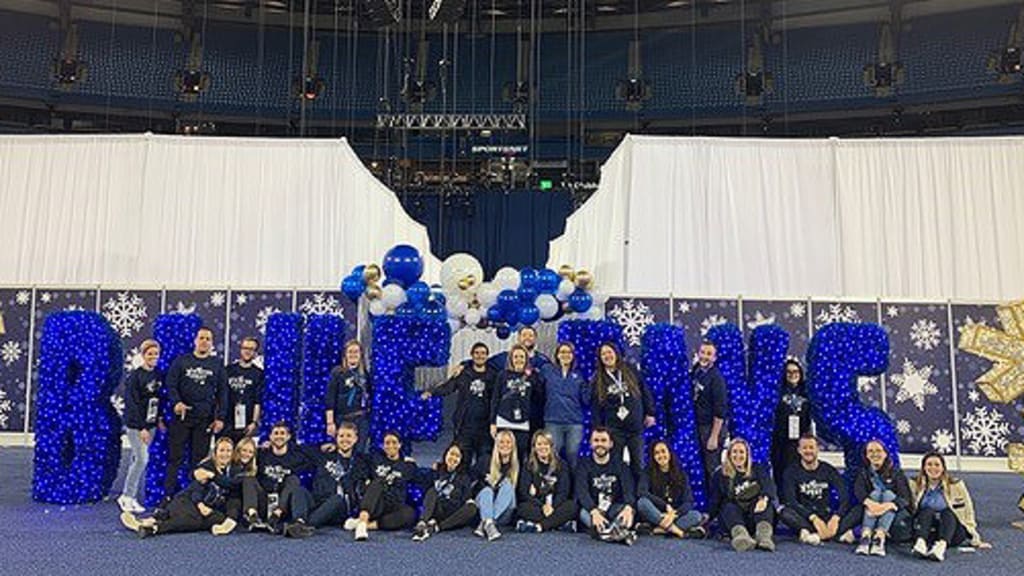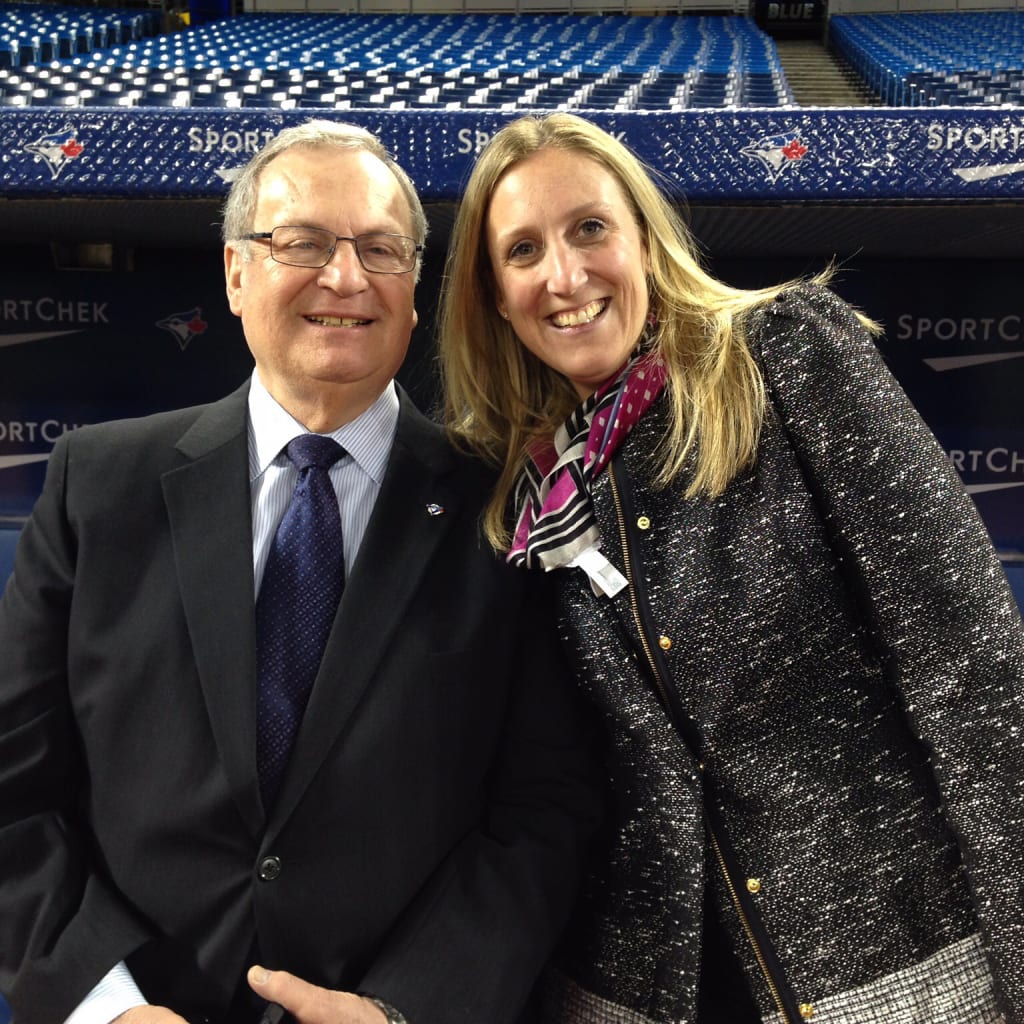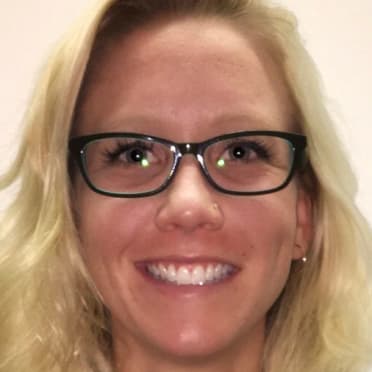
The earliest memories of Marnie Starkman’s life are tied to baseball.
Currently, she’s the executive vice president of marketing and business operations for the Blue Jays, her 12th year of working for the team. She oversees more than 60 people, sharing a business leadership role with Anuk Karunaratne, and she has the marketing, communications, fan experience, concessions, gameday operations and Florida operations departments all falling under her purview.
But she can remember more than three decades ago when her father, Howie, was working out of a trailer adjacent to the ballpark as director of public relations for Toronto, and her mother placing her brother in a playpen in the trailer before they set out to watch a game.
Back then, the organization was smaller, teams and their staffs much leaner than they are now. The close-knit environment had a feeling of family affiliated with it, something that Starkman believes the organization is aiming to return to, albeit with more branches on that family tree as the club has expanded. But as her roles have evolved and her thoughts have drifted to the legacy she might someday leave, she comes back to that feeling.
“When I leave this organization, I hope someone might say, ‘Marnie was a great leader because she cared about us,’” Starkman said. “That means more to me than our final attendance numbers, our ticket revenues, and those are responsibilities of mine. But for both Anuk and me -- and it’s harder in a pandemic -- every decision we make we’ve tried to do it by asking: Is this a place that you want to work? Are these people you want to work for? We’ve changed how we work. People should be empowered at every level, should feel welcomed, wanted.”
Starkman isn’t planning on departing anytime soon, but it’s easy to understand why at least some of her focus is centered around how she might one day be remembered. Throughout her time in baseball, Starkman has heard countless tales about her father. Howie was hired before the Blue Jays played their first game, he spent 45 years working for the organization, is a Canadian Baseball Hall of Famer and is honoured in Cooperstown. He wasn’t immediately happy with his daughter when she took her first job with the club. But their time together and the impact he’s had on the game have become cherished memories for his daughter.
“Sentimentally, the most rewarding part of the job was having Opening Days with my dad, and being able to experience [the postseason in] 2015 and ’16 with him,” Starkman said. “I had this great crossover when I came to baseball, because my dad was still working full-time. The coolest part about that was listening to people who had worked in the industry for years and years, and no one ever had a bad word to say about him. I remember thinking to myself, ‘That’s a legacy.’ … The best part of the transition was the ability to see how respected my dad was.”

As the old adage goes, the apple doesn’t fall far from the tree, and certainly not when it comes to being a respected part of the Blue Jays organization.
“Marnie is smart, prepared, passionate, knows the game extremely well, is an elite leader, understands people and invests in their development and growth, is curious, open-minded and focused on getting better and learning,” Toronto president and CEO Mark Shapiro said. “She checks every box for me in what you want in an impact leader and feel incredibly fortunate she’s co-leading our business operations.”
Added general manager Ross Atkins: “One of the many things that’s unique about Marnie is she’s always thinking about the impact on other people: how each decision is going to influence the day in the life of a baseball player, the day in the life of a baseball player’s representation, the day in a life of a baseball player’s wife. Thinking about those details and then having experience with them is difference-making for us. It’s not just the experience, it’s her diligence and working through that and thinking of others and how she can improve others’ existence, environments and day-to-day lives.”
Growing up, Starkman’s baseball memories became tied to the seasons. When February rolled around, she knew it was the beginning of a time when she would barely see her father for at least the next six months. When she was very young, she, her brother and her mother would join him whenever possible. As she got older and became a competitive synchronized swimmer, and her brother a competitive hockey player, the focus shifted from their dad’s career to their own lives.
Now, Blue Jays baseball has become her life once more.
“My colleagues are what I love most about the job,” Starkman said. “My team is what I do. I don’t mean that in a cheesy way, I mean that they’re literally some of my closest friends. Some people might say that’s not the way you should lead but when you work this many hours -- and I have staff members who have packed up their lives and don’t know when they’re moving home, and this is the second year they’ve done that -- you have different relationships with your staff. And I love seeing them succeed. … It’s being with my team and seeing their creative ideas succeed.”
Right now, Starkman and her staff’s successes are built around a threefold focus. Their first priority is to ensure the best possible facilities for their players, which has been an incredible challenge throughout the pandemic and Toronto’s search for multiple home bases. Quick to deflect praise, Starkman will note that the success they’ve had in that area is a significant team effort. Her second priority is aiming to stay engaged with Blue Jays fans, also with significant obstacles amid the circumstances. The third priority is the business rebound and what things might look like down the road.
“I want to be in a position that our business is set up to thrive for years of winning ahead,” she said. “That’s what we can control. We can’t control what happens to our game, when vaccinations occur; we can’t control that. But we can control how engaged our fans are, what we’re doing externally, what’s happening with our brand and what our team stands for. Ultimately, that’s going to result in what I call the best rebound imaginable, and hopefully the way we’re building this team, that’s years of winning.”
Starkman understands that her perspectives on the game are unique, and she admits that she does not enjoy the phrase “work-life balance,” nor does she understand it. She believes working in baseball is a lifestyle and works hard to find people who are passionate, but who also understand what it might take to succeed.
“This is not like working for Coke,” Starkman said. “When you work for Coke, you’ve got to know everything that’s in a can of Coke. If you don’t love this game, it’s a hard, grueling schedule. You’re there all day working and then you’ve got games at night. I don’t cook dinner when the team is on the road without the game being on TV. If I’m out for dinner with my girlfriends on a Tuesday night when we’re playing on the road, my phone’s on or I’m checking the score every 15 minutes. That’s something I grew up with, but if you work in the sport and you really love the game, that becomes a part of it. That’s the only way you can exist.”
And Starkman is working to try to expand that existence. She knows it might be easier for people in hiring positions to find their own love and passion for the game reflected in young men. Though the game is shifting, it is still somehow easier to understand the perception that boys belong in baseball, while girls are often tested and questioned. Though Starkman would rather help make improvements through her leadership and ability to empower others than dwelling on the issues, she knows they also need to be discussed.
“When I was a kid, you didn’t see any women working in the Blue Jays’ front office -- you just didn’t,” Starkman said. “The one thing I’ve thought a lot about is what lasting legacy can I leave without just making it about the staff I hire? And the more girls we can get playing baseball, the more they start to love the game, know the game, are confident in the game, they can understand they can do the job.
“I really believe it comes from the playing baseball level. I always tell women, ‘You need to know the game twice as well as the guy sitting next to you, for your credibility.’ Hopefully, we don’t have to be that way 10 years from now, but right now you do. And if you play, you learn it much more easily. So I keep thinking long-term, balcony view. If we can get more girls playing, we get more girls comfortable in the game, loving the game, fans of the game, they can see their career path in the game.”
